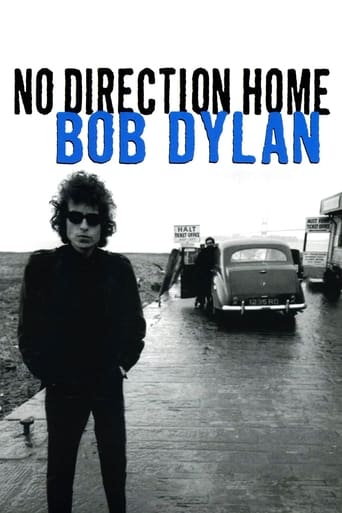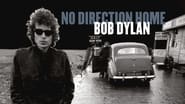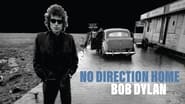jc-osms
I'm not the world's biggest Dylan fan, he's gone through too many artistic troughs for me, but when he's good ("Highway 61 Revisited", "Blood On The Tracks"), he's very good indeed but when he's bad - ("Nashville Skyline", most of "Desire" and "Time Out Of Mind" to pick some bigger targets) he's terrible.I get that his going electric was a big deal in rock history, possibly because it happened so suddenly and dramatically but whether it's more important than the Beatles going from a pop band to a rock band or the Stones from a blues band to a rock and roll band, I personally doubt. Still, I can't deny that from 1965 to 1966, he was on fire as he turned away from his folk roots to embrace rock and roll stardom and it's that latter part of this film that I enjoyed far more than the over-long first half purporting to trace his roots and early influences.All sorts of folk-luvvies queue up in part one to relate the fleeting time they spent with the man who would be king with too many back-up clips of be-sweatered individuals singing very strangely and earnestly and I couldn't really care less about any of them to be honest. Things heat up considerably when he decides to go electric although even if it was initially done half-heartedly as he recorded an album ("Bringing It All Back Home") and played concerts half acoustic and half electric before going the whole hog.I recognised much of the '65 / '66 footage from "Don't Look Back" and other clips from the unreleased "Eat The Document" film and they are terrific. The vitriol Dylan takes from his so-called fans (especially an episode where he's accosted in a car for an autograph by a moronic young English couple) and the ignorance of journalists who ask inane questions of him has to be seen to be believed.The real coup for Scorsese was in getting Dylan himself to speak to camera in extended interviews, although several of these are obviously edited. In his pieces to camera, Dylan can't help but occasionally play up to his mystical persona but mostly he's quite candid, natural and engaging. Back in the day of course, he looked fantastic, pencil thin and tousle-haired and some of his put-downs are superb as witness his fan encounters or those interminable press-gatherings. I would have liked a little more insight into just why he first pulled on his Strat (I always credited it to the Animals version of "House Of The Rising Sun"), but any explanation or reason is left vague. Scorsese makes the real centre point of the film the famous Manchester Free Trade Hall gig where he confronts the taunting, obviously way more than five, unbelievers in the crowd by exhorting the band / Band to "Play it f*#king loud!". I love it when a pair of vox-poppers reactions after a gig in Newcastle are captured on film - "I came expecting folk music and instead got a pop group" to which the reply was along the lines of "That wasn't a pop group you saw tonight!".I suppose the film for me was like his half and half acoustic / electric album or concerts of the time, in that I infinitely preferred the second, electric half to the first. True fans may have got more out of it than I did and while I would say that bar "Blood On The Tracks", he was never this vital again, it felt privileged to see an artist at the peak of his powers which he wasn't from 1962-1964, but certainly was from 1965 - 1966.
KissEnglishPasto
........ ........... ....................................from Pasto,Colombia...Via: L.A. CA., CALI, COLOMBIA and ORLANDO, FL No Direction Home is, without a doubt, the very best music-themed Documentary I have ever seen in my life! For anyone who considers themselves someone with a special interest in pop culture, music, sociology or even contemporary history, this mesmerizing Martin Scorsese documentary not only is a "Must see", but I would say a "Must have"! (As in "your collection"!) Here we gain the most fascinating insight into many aspects of Dylan's early career, his creative process, his relationships with other artists and music industry insiders, (particularly with one time love interest, Joan Baez) and the general interaction of Bob Dylan, his music, his growing popularity and the overall effect of these on our culture in the 1960's! Some of what is covered I think I was previously aware of, some of it, I wasn't, and quite a bit of it had simply been forgotten, owing to the half a century that has passed! What surprised me most in DIRECTION HOME? Well, Joan Baez is interviewed extensively and has perhaps the most on-screen time other than Bob Dylan himself. In the 60's and 70's, I always admired Baez as a very talented, outspoken and highly principled young woman …But, quite honestly, never considered her as being very attractive. She has to be, what?...Like mid-to late 50's when she was interviewed for this documentary. To see her now, so mature, articulate, radiant, overflowing with self- confidence…Well, let's just say that all of this made it EXTREMELY HARD for me to overlook her on screen appearance! Well, I certainly hope this review did not contain too much information! 9*....................................ENJOY!/DISFRUTELA! Any comments, questions or observations, in English o en Español, are most
[email protected]
bandw
This biography of Bob Dylan traces his life from leaving his home in Hibbing, Minnesota until his motorcycle accident in 1966 at the age of 25. I came away from this with a renewed appreciation for just what a phenomenon he is. I can't think of any other artist who has given us what he has. There are other folk singers and rock stars, but nothing like Dylan. If you think of a poet as someone who strings words together to produce powerful images and strong emotional reactions, then Dylan is your man. I admit that a lot of Dylan's songs don't make complete sense to me, but they fascinate and afford many interpretations, and just the flow of words is captivating. The first scene in Part 2 provides a great insight. Dylan is seen on the street reading two signs, one saying, "Animals & Birds bought or sold on commission," and the other, "We will collect clip bath & return your dog/ KN1 7727/ Cigarettes and Tobacco." Dylan takes these words and goes on a spontaneous riff for a minute making sentences from them. Clearly he is a man who delights in words and has a great facility with them. You can see from this clip how he can come up with his songs. Could anyone but a poet come up with lines like: "The morning breeze like a bugle blew/ Against the drums of dawn," and "The ocean wild like an organ played/ The seaweed's wove its strands." The film traces the roots of Dylan's early musical interests; it would have been interesting to see how early on he became facile with words.It is amazing how many inane questions Dylan was asked by a largely ignorant press. Questions like, "Why do you sing?" and "How do you explain your popularity?" It's no wonder he could get frustrated and annoyed. Clips from a current interview are interspersed throughout the film, so Scorcese was able to get more meaningful comments out of him than any of the questioners shown here.As any good artist Dylan keeps changing. When he went from acoustic guitar to electric with a backup band many people felt somehow betrayed, but he was just moving on. The variety of his output is quite amazing, from poignant songs like, "Lay Down Your Weary Tune," to biting social commentary like "Only a Pawn in the Game," to wistful love songs like "Girl From the North Country," and then all the classics that were the soundtrack for a generation. This film seems to imply that Dylan's career ended with his motorcycle accident, but far from it--he has continued to write and record, having released a new album as recently as 2006.Another topic of interest covered is the artist/businessman relationship. Most artists want to reach as large an audience that can appreciate them and this usually means that there must be agents, promoters, and investors in the picture. Dylan seems to have navigated this precarious situation successfully while still preserving his integrity. He was not above embellishing his background and you have to feel that he has to have some business sense to have wound up where he is. But he appears to come from that breed of artist whose main goal is to practice his craft rather than achieve fame.I found parts of the film not completely successful. The interviews with some lesser knowns as Paul Nelson and John Cohen were of questionable value to me--it was not clear just what role they played in Dylan's career. The interviews with Alan Ginsberg are interesting, but his importance might not be understood by one not of his generation. It was frustrating to have songs interrupted or cut short, but I suppose that was necessary in the interests of keeping this under four hours.Of course the archival footage of, and current interview with, Joan Baez are highlights. I had forgotten just what a pure voice she had, a voice that seemed almost too perfect to be of this world. There is some great archival footage of Johnny Cash, a great performance by Odetta, and fascinating clips of John Jacob Niles, Peter LaFarge, and the Clancy Brothers. Put Dylan's poetry to music together with his musical talent and distinctive voice and you have a complete package. Of course not everyone appreciates that package, but as Joan Baez said, "If you're interested, he goes way, way deep."This is an ambitious biography of a complex man and even at almost four hours one feels that much has been left off the table. The work of any artist must remain a mystery.
beasymc
the best rock movie of all time. Martin is pure genius. I just love the guy. long movie, sure, but part two just flies by. What an insight. Personally, I think Martin should make more of these on artists that he admires like this one on Bob Dylan. Where does he get this stuff. I read where he really didn't talk to Bob while he was making this movie. even more brilliant. I've got to think Dylan had to love this when he saw it for the first time. It always amazes me how most people just don't get it. The questions they ask, yikes. All i can say is it is a great story. I hope someone does something like this on Scorsese. I love his passion to try to get things right. He is inspiring. Thanks again Martin, and to you too, Bob for having the courage just to be you in the face of it all.






